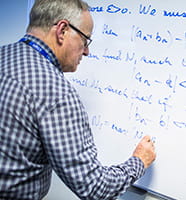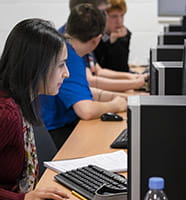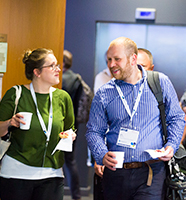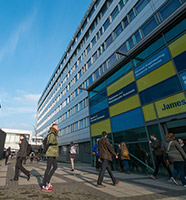About PROTECT
Find out more about PROTECT's research
PROTECT develops solutions and tools for the enrichment and security protection of critical computing systems.
The research PROTECT conducts requires cross-subject collaboration and focuses on a number of key areas, including: the security to safeguard systems against cyber-attacks, networking to support the systems’ distributed operations, game techniques to advance their user interaction and visualisation, as well as software engineering and artificial intelligence to build autonomic capability into the systems for intelligent operations. These key areas are supported by PROTECT’s five research groups:
- Networking and Distributed Systems Research Group
- Computer Games Research Group
- e-Healthcare Research Group
- Applied Computing Research Group
- Network and Information Security Technology Research Group
In the latest research assessment (Research Excellence Framework 2021), 80% of our research outputs (or publications) and 75% of our research impact were rated as being world leading or internationally excellent. In the future, PROTECT will continue to research and develop practical solutions to facilitate the configuration and interoperation of critical computing systems in an adaptive, autonomous, secure and visual manner. PROTECT will also continue to establish itself as a leading centre for developing and applying trustworthy computer technologies that society have become increasingly reliant upon.
Research impact
Since its creation in 2011, PROTECT has produced a wealth of outstanding research. In addition to generating a large number of publications during the Research Excellence Framework 2021 period, PROTECT has also had great success within its practical research.
For example, PROTECT’s work into system-of-systems security resulted in ANIKETOS – a large EU FP7 project looking into secure and trustworthy composite services.
ANIKETOS involved 17 partners in 10 EU countries and resulted in a total grant of €9.6 million. Thanks to the work the researchers carried out, a suite of open source software tools for composing secure Internet services were created. These tools have a wide range of applications with both economic and social impacts. For example, they can enable companies to compose Internet services according to their needs securely, quickly and economically.
The Centre also received funding from H2020. For example, a project, named Wi-5, had a funding total of €2.1 million. Researchers involved in the Wi-5 project developed integrated and coordinated smart solutions to optimise connectivity for new and emerging Wi-Fi services. The project has generated a significant impact on wide and efficient access to Wi-Fi services that the general public and businesses become increasingly reliant on.
Within the computer games technology area, PROTECT worked on the Homura projects, which were supported by BBC R&D. As part of this work, researchers from PROTECT looked at the development of cross-platform, cross-browser and hardware-accelerated 3D games. The project produced open source software tools used to create 3D game applications that can be used within entertainment or children’s education.





